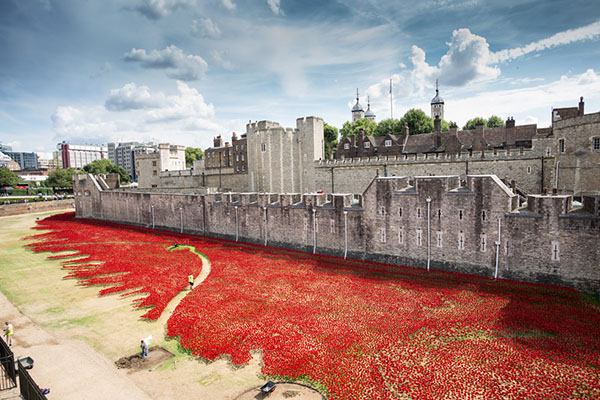As the month of November unfolds itself, the red poppy flower pinned up to people’s coats becomes a distinctive element in the Commonwealth of Nations. November 11th marks the end of the World War I and each year this day is observed as Rememberance Day honouring the members of the commonwealth armed forces who have died in the line of duty.
The red remembrance poppy has become a familiar emblem of Remembrance Day due to the poem In Flanders Fields. These poppies bloomed across some of the worst battlefields of Flanders in World War I, their brilliant red colour became a symbol for the blood spilled in the war.
Artist Paul Cummins and stage designer Tom Piper pay their respect to the brave and loyal soldiers through a creative installation called Blood Swept Lands and Seas of Red. The extraordinary installation consists of 888,246 ceramic poppies that surround the Tower of London, each representing a British and Commonwealth person who died during the first world war.
The incredible installation spreads over an area of 16 acres, which is roughly equivalent to 250 tennis courts or 16 soccer fields. Handmade clay models of the poppy were created under close supervision of Paul Cummins and the entire setting was designed by Tom Piper. A team of over 8000 volunteers worked round the clock to assemble each flower carefully in its assigned place.
Designer Tom Piper said, “It does look very beautiful, but people are beautiful and our human life force is beautiful. So it is a good way of getting people to contemplate all this loss of life.”
While the first poppy was planted on August 5th, the first day of Britain’s full participation in the war, the last poppy will be planted on Remembrance Day tomorrow.
All Images © Richard Lea-Hair and Historic Royal Palaces











